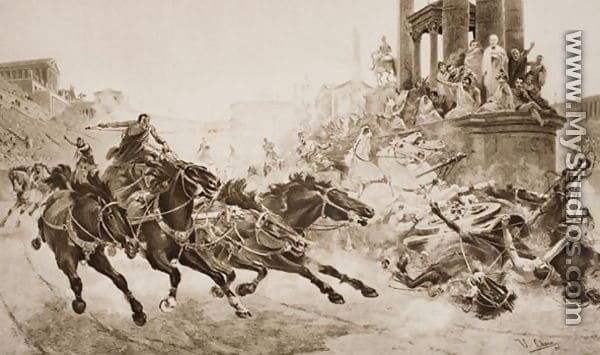The Roman Emperor Nero is known for many things. Primarily, he is known as one of the most infamous arsonists in history, with many ancient sources claiming he was responsible for a terrible fire that destroyed much of Rome in the year 64 CE, though this claim is disputed.
What is not disputed is his reputation for cruelty, especially concerning his persecutions of early Christian communities; famously tying oil-drenched Christians to columns and burning them alive during the night while watching his morbid work from amongst the crowd. His cruelty was not limited to strangers, however, as he also ordered the assassination of his own mother, and executed one of his wives and kicked the other to death.
However, these types of exploits were not exactly uncommon among Rome’s rulers. More than one Roman Emperor was known for his murderous brutality. Perhaps what distinguished Nero even more than his cruelties were his personal indulgences, which became increasingly public as his egomania developed. In fact, Nero’s life grows stranger and even becomes somewhat absurd, once his personal passions are contemplated.
Nero possessed a deep passion for classical Greek sports and the performing arts. He enjoyed singing, acting, writing poetry, and playing the lyre, as well as horse racing of various kinds. Early on, performing for private audiences was enough to satisfy his interests and his ego. These acts within themselves were not strange, but as time passed his passion for performance came to shock Roman high society. As Nero’s confidence and ego grew, and with fewer people within his circle possessing the will or the inclination to curb his appetites, he made his performances public.

At the time, this was deeply scandalous. Things like singing, acting, and playing instruments in public were not the way respectable and socially distinguished people behaved. For a person as important as Nero, Emperor of Rome, to conduct himself in such a way was considered intensely shameful. But in 64 CE, ten years into his reign, an increasingly indulgent Nero gave his first public performance. Most considered it horrifying to see an Emperor demean himself on stage.
Many came to the conclusion that even the gods were offended when a short time after, the theater in which Nero held his performance was destroyed by an earthquake. Undeterred, within a year he performed once more, this time in the city of Rome itself, further reinforcing growing tensions between himself and the Roman Senate.

